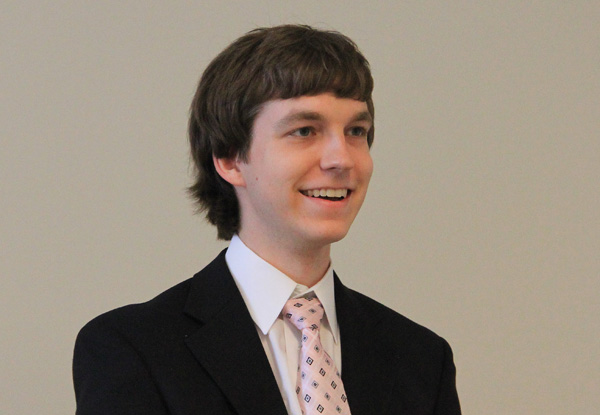Classics
Trey Frye ’12
Open gallery

“When I arrived at Southwestern in 2008, I, like my most first-years, stared down the degree requirements and decided to bite the bullet and start working on my language requirement. But rather than taking Spanish or Chinese as many of classmates were doing, I chose Ancient Greek. Though I at first found the strange alphabet rather intimidating, Ancient Greek class quickly became my favorite subject, and before long, I had decided to pursue Ancient Greek as my Bachelor’s degree. In this program, I found the opportunity to combine a great many of my interests, from fulfilling my linguistic curiosity to understanding the origins of Christianity, and I was quite satisfied with what I was able to study.
“In describing my degree to others, most people assume that the degree was simply a great deal of drudgery focused on dusty old texts. And to be honest, their assumptions are in many ways quite true. Yet due to the partnerships that the Classics department has been able to foster over the years with other universities through the Sunoikisis project, I was able to learn from and draw on a large network of professors beyond what would have been possible at other schools. In this program, I experienced the cutting edge of online education, working closely with Dr Haskell during the week while simultaneously working with and learning from professors at other top-tier universities from across the US. Through this network, I had the opportunity to be exposed to a great diversity of research about the ancient Mediterranean, from the referential culture of 4th century Greek poetry to the bashfulness of Greek texts in the sexual language. Though I could have learned Greek in any classics department, the classes I took through the Sunoikisis project were invaluable in my formation as a student at Southwestern.
“Upon graduation in 2012, I found myself facing a new challenge, attempting to find work with a degree in Ancient Greek. Though I greatly enjoyed studying Greek, I knew that the possibility of finding a job that required the ability to read Homer in ancient degree was fairly unlikely, to say the least. Yet despite the apparent issues, I soon found myself working in Telecom as a financial analyst, advising large enterprises on how to lower their wireless expenses. Though on the surface my degree in Ancient Greek seemed especially irrelevant to this sort of job, I found that many of the skills that I had developed in my study of Greek transferred effortlessly to the financial world. In looking back on that period, the skills I brought to the table in translating and analyzing obscure or complicated texts (be they early Christian manuscripts or wireless bills) solidified my success in this job and allowed me to bring a fresh perspective to my work.
“In 2014, though, I decided that I was ready to return to the academic world and begin the long path towards a PhD focused on Christian origins. To begin, I applied to multiple programs that offered a Master’s in Religion, and I was accepted at Yale Divinity School, which I currently attend. As I look back on how I got here, I am grateful for the work and dedication that my professors showed at Southwestern. Without their help, I am certain I would not be where I am today. Though the road is long ahead, I will always be thankful for those years I spent at Southwestern and how it prepared me for where I am today.”
January 2016














